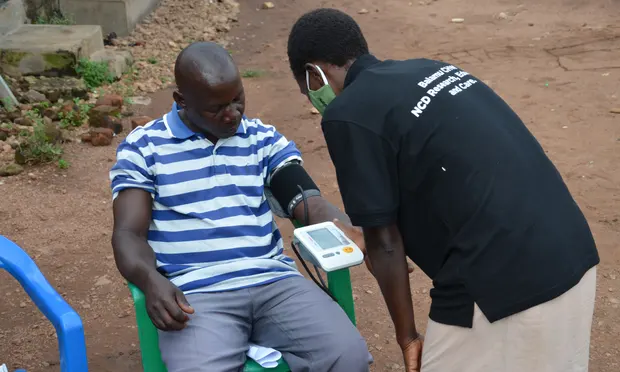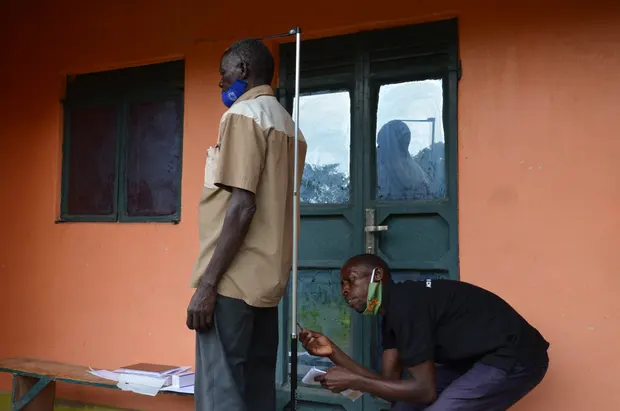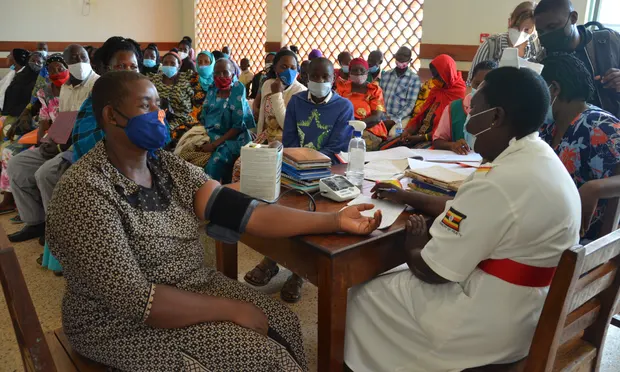Uganda’s Progress in Treating Diseases Brings Hope
Tackling Non-Communicable Diseases in Rural Uganda In Nakaseke, Uganda, where there is only one doctor for every 25,000 people, the Balamu project is making a difference in the fight against non-communicable diseases (NCDs). With three clinics in the area, the project is pioneering a community-based approach to healthcare that is proving so successful that the Ugandan government has committed to replicating it nationwide.
The Growing Burden of NCDs in Uganda
Most Ugandan government health facilities focus on infectious diseases, but the burden of illnesses in the country is transitioning to NCDs. These preventable conditions, such as diabetes, kidney disease, and chronic lung conditions, are responsible for roughly 71% of global deaths each year, killing 41 million people worldwide. Uganda “has been overwhelmed by the growing burden of NCDs across all socioeconomic strata,” according to a 2021 assessment.
The Balamu Project’s Success The Balamu project’s clinics treat patients with NCDs, and have been so successful that the Ugandan government is committed to replicating them nationwide. The weekly clinic at Nakaseke general hospital has seven nurses and one doctor who works across the three clinics. Every Friday, the clinics see around 100 to 200 patients in a region where over 60% of people live on less than £10 a month.
The Importance of Community-Based Care
Balamu, meaning “being healthy” in the Luganda language, is community-based, providing public education booklets, pioneering electronic medical records, and educating nurses. Following World Health Organization (WHO) guidelines, it integrates care under one roof. A key achievement has been training health workers to screen patients, make referrals, and follow up on medication. So far, they have screened 16,000 people.
Challenges to NCD Treatment in Uganda
The major challenge to treating NCDs in Uganda is that most care, even in government hospitals, is met by patients using out-of-pocket payments. Many hospitals lack equipment and medicines to fight NCDs, which compares poorly with communicable diseases that have received funding for the last 30 years. Patients with NCDs, such as kidney disease, often tell Dr Robert Kalyesubula, founder of Access Uganda and the Balamu project, that they wish they had HIV instead, because those people receive free medical care.
The Prevalence of Hypertension in Uganda

NCDs are projected to become the leading cause of death across Africa by 2030, with that milestone already reached in eastern Uganda. Hypertension is a particular issue in the region, with prevalence estimated to be between 26% and 31%, and only 7% aware of their condition, according to surveys. The Balamu project has been successful in detecting and treating hypertension, as well as other NCDs.
Patients’ Stories Immaculate Nakabiri, 73, attends Balamu’s Semuto clinic for her high blood pressure. She says that most people over 50 in her community have undiagnosed illnesses that badly affect their lives.

Dr Richard Munana, who rotates his time between the three Balamu clinics, says the biggest challenge is out-of-stock medicines due to government policy paying more attention to communicable diseases than NCDs.
Conclusion
In a country overwhelmed by preventable NCDs, the Balamu project is making a difference in rural Uganda. With its community-based approach to care, it is detecting and treating NCDs in a region where access to healthcare is limited. Its success has led the Ugandan government to commit to replicating the project nationwide, bringing much-needed care to underserved communities.
However, challenges remain in scaling up the project and ensuring sustainability. Adequate funding and resources will be needed to expand the project and maintain its services. Additionally, efforts must be made to address barriers to care, such as transportation and lack of awareness about NCDs, to ensure that all individuals can access the care they need.
Despite these challenges, the Balamu project serves as a model for community-based NCD care in resource-limited settings. Its impact on the health and well-being of individuals in rural Uganda is undeniable, and its success should be celebrated and emulated. By investing in community-based care and prevention efforts, we can work towards a future where NCDs are no longer a leading cause of death and disability in low- and middle-income countries.




